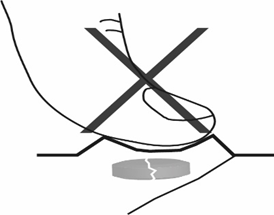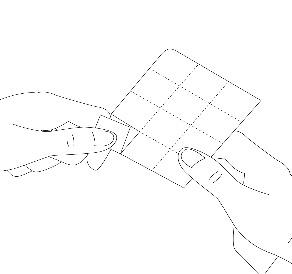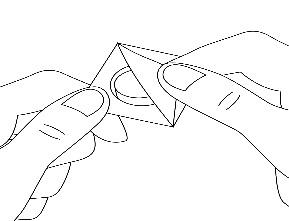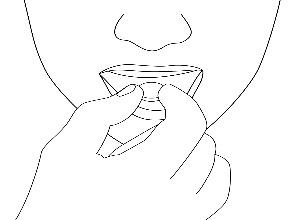
Mirtagen
Ask a doctor about a prescription for Mirtagen

How to use Mirtagen
Package Leaflet: Information for the User
Mirtagen, 15 mg, orodispersible tablets
Mirtagen, 30 mg, orodispersible tablets
Mirtagen, 45 mg, orodispersible tablets
Mirtazapine
Read the package leaflet carefully before taking the medicine, as it contains important information for the patient.
- Keep this leaflet, you may need to read it again.
- If you have any further questions, ask your doctor or pharmacist.
- This medicine has been prescribed for you only. Do not pass it on to others. It may harm them, even if their symptoms are the same as yours.
- If you experience any side effects, including those not listed in this leaflet, tell your doctor or pharmacist. See section 4.
Contents of the package leaflet:
- 1. What is Mirtagen and what is it used for
- 2. Important information before taking Mirtagen
- 3. How to take Mirtagen
- 4. Possible side effects
- 5. How to store Mirtagen
- 6. Contents of the pack and other information
1. What is Mirtagen and what is it used for
Mirtagen belongs to a group of medicines called antidepressants.
Mirtagen is used to treat depression in adults.
2. Important information before taking Mirtagen
When not to take Mirtagen:
- if you are allergic to mirtazapine or any of the other ingredients of this medicine (listed in section 6),
- if you are taking or have taken monoamine oxidase inhibitors (MAOIs) in the last two weeks.
Warnings and precautions
When not to take Mirtagen or consult your doctor before starting treatment:
If you have ever experienced symptoms such as severe skin rash or skin peeling, blisters, and (or) ulcers of the mucous membranes of the mouth after taking Mirtagen or other medicines.
During treatment with Mirtagen, severe skin reactions such as Stevens-Johnson syndrome, toxic epidermal necrolysis, and drug reaction with eosinophilia and systemic symptoms have been reported.
If you notice any of the symptoms described in section 4 regarding severe skin reactions, you should stop taking the medicine and consult your doctor immediately.
If you have ever had severe skin reactions, do not restart treatment with Mirtagen.
Children and adolescents
Mirtagen should not be used in children and adolescents under 18 years of age, as its efficacy has not been established.
It should also be noted that in patients under 18 years of age treated with this type of medicine, there is an increased risk of adverse reactions such as suicidal attempts, suicidal thoughts, and hostility (especially aggression, rebelliousness, and anger).
However, your doctor may prescribe Mirtagen to patients under 18 years of age if he/she considers it to be in their best interest.
If your doctor has prescribed Mirtagen to a patient under 18 years of age and the patient wishes to discuss this, they should consult their doctor again.
If symptoms such as those mentioned above worsen in patients under 18 years of age taking Mirtagen, the treating doctor should be informed.
Additionally, the long-term effects of Mirtagen on safety, including effects on growth, maturation, and cognitive and behavioral development, have not been established in this age group.
Furthermore, significant weight gain has been observed more frequently in patients treated with mirtazapine in this age group compared to adults.
Suicidal thoughts and worsening of depression
Patients with depression may sometimes have thoughts of self-harm or suicidal thoughts.
These thoughts may worsen when antidepressant medicines are first taken, as these medicines take time to work, usually about 2 weeks, and sometimes longer.
The patient may be particularly at risk:
- If the patient has had thoughts of self-harm or suicide before.
- If the patient is a young adult. Information from clinical trials has shown an increased risk of suicidal behavior in adults under 25 years of age with mental disorders treated with antidepressants.
In the event of suicidal thoughts or suicidal attempts, contact your doctor or go to the hospital immediately.
Talking to someone close to you or a friend may be helpful.The patient may inform these people about their depression and ask them to read this leaflet so that they can tell the patient if they notice a worsening of their condition or unusual changes in behavior.
Before starting treatment with Mirtagen, the following conditions should be discussed with your doctor or pharmacist if they are present or have been present:
- seizures(epilepsy)
- liver disease, including jaundice
- kidney disease
- heart disease or a history of heart disease, including certain heart rhythm disorders that can cause changes in heart rhythm, recent myocardial infarction, heart failure, or the use of certain medications that can cause heart rhythm disorders
- low blood pressure
- schizophrenia
- bipolar affective disorder(alternating periods of elevated mood and depression)
- diabetes(may require a change in insulin or other hypoglycemic medication dosage)
- eye diseases, such as increased intraocular pressure (glaucoma)
- difficulty urinating, which may be caused by an enlarged prostate.
Elderly patients
- if you are elderly. You may be more sensitive to the adverse effects of antidepressant medicines.
During treatment
Tell your doctor:
- if you experience symptoms of infection, such as high fever, sore throat, and mouth ulcers. These symptoms can be a sign of blood disorders.
Although rare, these symptoms usually occur within 4-6 weeks of treatment.
Mirtagen and other medicines
Do not take Mirtagen with:
- monoamine oxidase inhibitors (MAOIs)or within two weeks of stopping their use. Do not start taking Mirtagen within two weeks of stopping MAOIs. Examples of MAOIs include moclobemide, tranylcypromine (antidepressants), and selegiline (used to treat Parkinson's disease).
Tell your doctor or pharmacist about all medicines you are taking or have recently taken, including those available without a prescription, especially:
- other antidepressant medicines like SSRIs(e.g., citalopram), venlafaxine, L-tryptophan, or triptans(used to treat migraines), tramadol(a pain reliever), linezolid(an antibiotic), lithium salts(used to treat certain psychiatric disorders), methylene blue(used to treat high levels of methemoglobin in the blood), and Hypericum perforatum(herbal preparations used to treat depression). In rare cases, when taking only Mirtagen or in combination with these medicines, serotonin syndrome may occur. Some of its symptoms include fever, sweating, increased heart rate, diarrhea, (uncontrolled) muscle spasms, chills, increased reflexes, anxiety, mood changes, and loss of consciousness. Contact your doctor immediately if you experience several of these symptoms at the same time.
- medicines used to treat anxiety and insomnia, such as benzodiazepines, e.g., diazepam, chlordiazepoxide.
- medicines used to treat schizophrenia, such as olanzapine.
- medicines used to treat allergies, such as cetirizine.
- medicines used to treat severe pain, such as morphine. Mirtagen in combination with these medicines may increase the sedation caused by these medicines.
Medicines that increase the level of mirtazapine in the blood:
- medicines used to treat infections; antibacterial medicines (such as erythromycin), antifungal medicines (such as ketoconazole), medicines used to treat HIV and AIDS (such as protease inhibitors, e.g., ritonavir, nelfinavir); antidepressant medicines(such as nefazodone) and medicines used to treat stomach ulcers (such as cimetidine). When combined with Mirtagen, these medicines may increase the level of mirtazapine in the blood. Tell your doctor if you are taking these medicines. It may be necessary to reduce the dose of Mirtagen, and after stopping treatment with these medicines, the dose of Mirtagen may need to be increased.
Medicines that decrease the level of mirtazapine in the blood:
- carbamazepine and phenytoin, medicines used to treat epilepsy; rifampicin, a medicine used to treat tuberculosis. When combined with Mirtagen, these medicines may decrease the level of Mirtagen in the blood. Tell your doctor if you are taking these medicines. It may be necessary to increase the dose of Mirtagen, and after stopping treatment with these medicines, the dose of Mirtagen may need to be decreased.
- warfarin, a medicine that prevents blood clots. Mirtagen may increase the effect of warfarin. Tell your doctor if you are taking these medicines. When treating with Mirtagen, it is recommended to monitor blood tests.
Mirtagen and alcohol
When drinking alcohol while taking this medicine, drowsiness may occur.
It is best to avoid drinking alcohol while taking Mirtagen .
Pregnancy and breastfeeding
Limited experience with the use of Mirtagen in pregnant women does not indicate an increased risk.
However, caution should be exercised when using during pregnancy.
If you become pregnant or plan to become pregnant while taking Mirtagen, ask your doctor if you can continue taking the medicine.
If Mirtagen is taken during pregnancy or shortly before birth, it is recommended to monitor the newborn for possible adverse effects.
Make sure the midwife and/or doctor are aware that you are taking Mirtagen.
The use of similar medicines (SSRIs) during pregnancy may increase the risk of a severe condition in children, called persistent pulmonary hypertension of the newborn (PPHN), causing rapid breathing and bluish discoloration.
Symptoms usually start within 24 hours of birth.
If these symptoms occur in the child, contact the midwife or doctor immediately.
Ask your doctor if you can breastfeed while taking Mirtagen.
If you are pregnant or breastfeeding, think you may be pregnant, or plan to have a baby, ask your doctor or pharmacist for advice before taking this medicine.
Driving and using machines
Mirtagen may reduce alertness and ability to concentrate. Before driving or operating machinery, make sure your ability to concentrate and alertness have not been impaired.
Mirtagen contains aspartame
This medicine contains 3 mg, 6 mg, or 9 mg of aspartame in each 15 mg, 30 mg, and 45 mg orodispersible tablet, respectively.
Aspartame is a source of phenylalanine.
It may be harmful to patients with phenylketonuria.
This is a rare genetic disorder in which phenylalanine accumulates in the body due to its improper elimination.
3. How to take Mirtagen
Always take this medicine exactly as your doctor or pharmacist has told you.
If you are not sure, ask your doctor or pharmacist.
Dosage
The recommended starting dose is 15 or 30 mg per day.After a few days of treatment, your doctor may recommend increasing the dose to the most suitable for you (from 15 to 45 mg per day).
The recommended dose is usually the same for all age groups.
However, in elderly patients or those with kidney and liver disease, your doctor may recommend a different dose.
When to take Mirtagen
Take Mirtagen once a day, at the same time every day.
Mirtagen is best taken in a single dose, before going to bed.
Your doctor may recommend taking the medicine in two divided doses – one dose in the morning and the other in the evening before going to bed.
The larger dose should be taken before going to bed.
Information about taking orodispersible tablets:
Take the tablets orally.
1. Do not crush the orodispersible tablet
To avoid crushing the orodispersible tablet, do not press on the blister containing the tablet (Figure A).

Figure A.
2. Tear off the tablet blister
Each blister contains tablet blisters separated by a perforated line.
Tear off one blister along the perforated line (Figure 1).

Figure 1.
3. Tear off the foil
Carefully tear off the covering foil, starting from the corner (Figure 2).

Figure 2.
4. Remove the orodispersible tablet
Remove the orodispersible tablet with dry hands and place it on the tongue.
(Figure 3).

Figure 3.
The tablet dissolves quickly and can be swallowed without water.
When can you expect an improvement in your condition
Mirtagen usually starts working after 1 to 2 weeks, and after 2 to 4 weeks, your condition will start to improve.
It is essential to discuss the effects of Mirtagen with your doctor during the first weeks of treatment.
After 2 to 4 weeks from the start of Mirtagen treatment, discuss your progress with your doctor.
If there is no adequate clinical response, your doctor may increase the dose.
After another 2-4 weeks, discuss your progress with your doctor again.
Treatment should be continued until the symptoms have completely disappeared, which usually takes 4 to 6 months.
Use in children and adolescents under 18 years of age
Mirtagen should not be used in children and adolescents under 18 years of age (see section 2 "Children and adolescents").
Taking a higher dose of Mirtagen than recommended
If you or someone else has taken a higher dose of Mirtagen than recommended, contact your doctor immediately.
The most common symptoms of Mirtagen overdose (without other medicines or alcohol) are drowsiness, disorientation, changes in heart rhythm (rapid heart rate, irregular heart rhythm), and (or) fainting.
These can be symptoms of life-threatening ventricular arrhythmias, known as "torsades de pointes".
Missing a dose of Mirtagen
In case you forget to take a dose of the medicine that is taken once a day
Do not take the missed dose of Mirtagen. Skip it.
Take the next dose the next day at the usual time.
Do not take a double dose to make up for the missed tablet.
In case you forget to take a dose of the medicine that is taken twice a day
If you forget to take the morning dose, take it with the evening dose.
If you forget to take the evening dose, do not take it with the morning dose. Skip it and continue treatment with the usual morning and evening doses.
If you forget to take both doses, do not try to make them up. Skip them and continue treatment with the usual morning and evening doses the next day.
Stopping treatment with Mirtagen
Only stop taking Mirtagen after consulting your doctor.
Do not stop taking the medicine too early, as this may cause the disease to recur.
If you experience an improvement, discuss it with your doctor.
Your doctor will tell you when you can stop treatment.
Suddenly stopping treatment with Mirtagen may cause nausea, dizziness, agitation, or anxiety, headache.
These symptoms can be avoided by gradually stopping the medicine.
Your doctor will tell you how to gradually reduce the dose.
If you have any further questions about the use of this medicine, ask your doctor or pharmacist.
4. Possible side effects
Like all medicines, Mirtagen can cause side effects, although not everybody gets them.
If you experience any of the following symptoms, stop taking Mirtagen and contact your doctor or go to the emergency room immediately:
Rare(may affect up to 1 in 1000 people):
- Pancreatitis, causing moderate to severe abdominal pain radiating to the back.
Frequency not known(frequency cannot be estimated from the available data):
- seizures (convulsions)
- yellowing of the skin or eyes, which may indicate liver function disorders (jaundice)
- a combination of symptoms such as unexplained fever, sweating, increased heart rate, diarrhea, (uncontrolled) muscle spasms, chills, increased reflexes, anxiety, mood changes, and loss of consciousness. In very rare cases, these may be symptoms of serotonin syndrome
- thoughts of self-harm or suicide or suicide attempts
- red skin lesions on the torso in the form of target-like spots or round spots, often with blisters in the center; skin peeling; ulcers of the mucous membranes of the mouth, throat, nose, eyes, and genitals. This type of severe skin rash may be preceded by fever and flu-like symptoms (Stevens-Johnson syndrome, toxic epidermal necrolysis)
- widespread rash, high fever, and swollen lymph nodes (DRESS syndrome or drug hypersensitivity syndrome)
- infection symptoms such as sudden high fever, sore throat, and mouth ulcers (agranulocytosis). Mirtazapine may cause blood disorders (bone marrow suppression). Some people become less resistant to infections because mirtazapine can cause a temporary decrease in the number of white blood cells (granulocytopenia). In rare cases, mirtazapine may also cause a decrease in the number of red and white blood cells, as well as platelets (aplastic anemia), a decrease in the number of platelets (thrombocytopenia), or an increase in the number of white blood cells (eosinophilia),
- muscle tissue breakdown, causing muscle pain, tenderness, stiffness, and (or) weakness, as well as dark urine (rhabdomyolysis)
- difficulty urinating or emptying the bladder
- lower than normal sodium levels in the blood, which may cause feelings of weakness and disorientation with muscle pain. This may be due to the improper secretion of antidiuretic hormone, which causes water retention in the body and dilution of the blood, reducing the amount of sodium.
Other side effects:
Very common(may affect more than 1 in 10 people):
- increased appetite or weight gain
- drowsiness
- headache
- dry mouth
Common(may affect up to 1 in 10 people):
- lethargy
- dizziness
- seizures or tremors
- nausea
- diarrhea
- vomiting
- constipation
- rash or skin eruptions
- joint or muscle pain
- back pain
- dizziness or fainting when changing position quickly, e.g., when standing up (orthostatic hypotension)
- swelling (usually of the ankles or feet) due to fluid accumulation (edema)
- fatigue
- vivid dreams
- disorientation
- feeling anxious
- sleep problems
- memory problems, which in most cases disappeared after stopping treatment
Uncommon(may affect up to 1 in 100 people):
- feeling excited or agitated (mania)
- unusual skin sensations, e.g., burning, tingling, or numbness (paresthesia)
- restless legs syndrome
- fainting
- unusual sensations in the mouth (oral hypoesthesia)
- low blood pressure
- nightmares
- agitation
- seeing, feeling, or hearing things that do not exist (hallucinations)
- urge to move
Rare(may affect up to 1 in 1000 people):
- muscle twitching or spasms (clonic muscle spasms)
- aggressive behavior
- increased liver enzyme activity in blood tests
Frequency not known(frequency cannot be estimated from the available data):
- unusual sensations in the mouth, e.g., burning, tingling, or numbness (oral paresthesia)
- mouth swelling
- low sodium levels in the blood (hyponatremia) visible in blood tests
- increased creatine kinase activity in the blood, visible in blood tests
- increased saliva production
- sleepwalking
- speech difficulties
- increased prolactin levels in the blood (hyperprolactinemia, including symptoms such as breast enlargement and (or) milky discharge from the nipple)
- prolonged, painful erection of the penis
Additional side effects in children and adolescents
The following side effects were commonly observed in clinical trials with children under 18 years of age: hives and increased triglyceride levels in the blood.
Reporting side effects
If you experience any side effects, including those not listed in this leaflet, tell your doctor or pharmacist.
Side effects can be reported directly to the Department of Adverse Reaction Monitoring of Medicinal Products, Medical Devices, and Biocidal Products:
Jerozolimskie Avenue 181C
02-222 Warsaw
phone: 22 49 21 301
fax: 22 49 21 309
Website: https://smz.ezdrowie.gov.pl
Side effects can also be reported to the marketing authorization holder.
By reporting side effects, you can help provide more information on the safety of this medicine.
5. How to store Mirtagen
Keep this medicine out of the sight and reach of children.
Do not use this medicine after the expiry date stated on the carton and blister after EXP.
The expiry date refers to the last day of the month stated.
There are no special precautions for storing the medicine.
Medicines should not be disposed of via wastewater or household waste.
Ask your pharmacist how to dispose of medicines no longer required.
This will help protect the environment.
6. Contents of the pack and other information
What Mirtagen contains
- The active substance of Mirtagen is mirtazapine. Each 15 mg orodispersible tablet contains 15 mg of mirtazapine. Each 30 mg orodispersible tablet contains 30 mg of mirtazapine. Each 45 mg orodispersible tablet contains 45 mg of mirtazapine.
- The other ingredients are: crospovidone, mannitol (E421), microcrystalline cellulose, aspartame (E951) (see section 2 "Mirtagen contains aspartame"), strawberry-guarana flavor, peppermint flavor, colloidal anhydrous silica, and magnesium stearate.
What Mirtagen looks like and contents of the pack
Mirtagen is an orodispersible tablet.
Mirtagen 15 mg orodispersible tablets are round, white, marked with the letter "A" on one side and "36" on the other side.
Mirtagen 30 mg orodispersible tablets are round, white, marked with the letter "A" on one side and "37" on the other side.
Mirtagen 45 mg orodispersible tablets are round, white, marked with the letter "A" on one side and "38" on the other side.
Mirtagen is available in blister packs containing: 6, 12, 18, 30, 48, 60, 90, 96, or 100 orodispersible tablets.
Not all pack sizes may be marketed.
Marketing authorization holder:
Viatris Limited
Damastown Industrial Park
Mulhuddart
Dublin 15
DUBLIN
Ireland
Manufacturer:
McDermott Laboratories t/a Gerard Laboratories
35/36 Baldoyle Industrial Estate
Grange Road
Dublin 13
Ireland
Mylan Hungary Kft
H-2900 Komárom
Mylan utca 1
Hungary
To obtain more detailed information on this medicine, contact the representative of the marketing authorization holder:
Viatris Healthcare Sp. z o.o.
Phone: +48 22 546 64 00
This medicine is authorized in the Member States of the European Economic Area under the following names:
Czech Republic
Mirtazapin Viatris
Denmark
Mirtazapin Viatris 15 mg, 30 mg & 45 mg smeltetabletter
Italy
Mirtazapina Mylan Generics Italia 30 mg & 45 mg compresse orodispersibili
Poland
Mirtagen 15 mg, 30 mg, 45 mg
Portugal
Mirtazapina Mylan 15 mg, 30 mg & 45 mg comprimindo orodispersive
Spain
Mirtazapina FLAS MYLAN 15 mg & 30 mg comprimidos bucodispersables
Netherlands
Mirtazapine SmeltTab Viatris 15 mg, 30 mg & 45 mg orodispergeerbare tablet
United Kingdom
Mirtazapine 15 mg, 30 mg & 45 mg orodispersible tablets
(Northern Ireland)
Date of last revision of the leaflet: 03/2024
- Country of registration
- Active substance
- Prescription requiredYes
- Manufacturer
- ImporterMcDermott Laboratories t/a Gerard Laboratories Mylan Hungary Kft.
- This information is for reference only and does not constitute medical advice. Always consult a licensed doctor before taking any medication. Oladoctor is not responsible for medical decisions based on this content.
- Alternatives to MirtagenDosage form: Tablets, 15 mgActive substance: mirtazapinePrescription requiredDosage form: Tablets, 30 mgActive substance: mirtazapinePrescription requiredDosage form: Tablets, 45 mgActive substance: mirtazapinePrescription required
Alternatives to Mirtagen in other countries
The best alternatives with the same active ingredient and therapeutic effect.
Alternative to Mirtagen in Spain
Alternative to Mirtagen in Ukraine
Online doctors for Mirtagen
Discuss dosage, side effects, interactions, contraindications, and prescription renewal for Mirtagen – subject to medical assessment and local rules.









